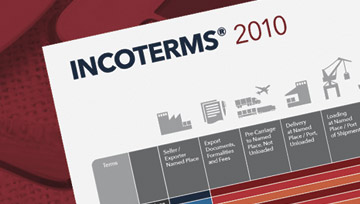Recent Trade News
Statement On The Passing Of Glen Todd
Mar 29, 2022
General Strike At Port Of Montreal Set To Begin Next Week
Apr 23, 2021 CSCB
Regulation Update To Pet Foods From The US
Apr 09, 2021 CFIA
Minister Ng announces Canada is ratifying the Canada-United Kingdom Trade Continuity Agreement
Mar 19, 2021 Global Affairs Canada
Importing Food Into Canada With A Safe Food For Canadians Licence
Mar 15, 2021 CFIA
Reminder: Importing food into Canada with a Safe Food for Canadians licence
Feb 17, 2021 CFIA
Safe Food For Canadians Licence Renewals
Jan 08, 2021 CFIA
Statement By Minister Ng On Canada’s Request For CUSMA Dispute Settlement Consultations With United States On Canadian Solar Products
Jan 07, 2021 Global Affairs Canada
Canada Announces Steps To Ensure Stability For Canada-United Kingdom Trade In Goods
Dec 22, 2020 Global Affairs Canada
Minister Ng Introduces Legislation In House Of Commons To Implement Canada-United Kingdom Trade Continuity Agreement
Dec 09, 2020 Global Affairs Canada
Implementation Of Chapters Of The Animal Products Import Policy Framework
Dec 02, 2020 CFIA
Canada Successfully Concludes Talks On Transitional Trade Continuity Agreement With The United Kingdom
Nov 21, 2020 Global Affairs Canada
Updated Requirements For Importing Organic Fresh Fruits And Vegetables
Oct 02, 2020 CFIA
New And Temporary Import Requirements On Romaine Lettuce
Oct 02, 2020 CFIA
U.S. Backs Down On Aluminum Tariffs
Sep 16, 2020 Pacific Customs Brokers
Canadian Tariffs On U.S. Products Coming Within Days
Sep 15, 2020 CSCB
Additional Organic Produce Import Requirements
Sep 10, 2020
Longshoremen Return To Work At The Port Of Montreal As Negotiations Continue
Aug 24, 2020
Port Of Montreal Labour Disruption – Vessel Options
Aug 19, 2020
72-Hour Strike From July 27 to 31 At Port Of Montreal
Aug 10, 2020
Canada Retaliates With New Surtaxes Imposed On Goods Imported From The U.S.
Aug 07, 2020
U.S. Imposes A 10% Duty On Canadian Aluminium Effective August 16th, 2020
Aug 06, 2020 Pacific Customs Brokers
Reduced Inspection Frequencies For Meat Imported From Australia And New Zealand
Aug 04, 2020 CFIA
Reminder On SFCR Requirements For The Manufactured Food Sector
Jul 10, 2020 Pacific Customs Brokers
Safe Food For Canadians Regulations (SFCR) Requirement For The Manufactured Food Commodities
Jun 29, 2020 CFIA
Read More News »
The Disadvantages of Delivered Duty Paid (DDP)
ABC Customs Brokers Oct 07, 2016
Outsourcing your Transportation and Customs Control
Have you ever asked yourself why you choose Delivered Duty Paid (DDP) for your international business? Many companies choose international terms of sale based on their company philosophy, history, costs, seller options or perceived ease of transaction. Without knowing the options; a company could be losing control of their shipments and increasing their costs dramatically. The solution is to understand all Incoterms®; the responsibility involved, and to select the most advantageous term for your business strategy.
Incoterms®
Incoterms® are terms that are agreed upon during the negotiation of a contract or sale and deal exclusively with;
- The obligation of buyers and sellers (with regard to each of the 13 stages involved in the transport and clearance of a shipment – see Incoterms® chart), and
- The stipulations on which party bears the risk of loss during transit.
Additional Information:
- The purpose of these terms are to provide a set of international rules for the interpretation of the most commonly used trade terms.
- The parties to the transaction select the Incoterms®, which determines who pays the cost of each transportation segment.
- Incoterms® influence customs valuation of imported merchandise. Certain costs within the supply chain may or may not be included in the value for Customs, depending on the term selected.
It is important that your buyers understand and select terms of sale that are in the best interest of your company. The best time to determine the chosen one is when the buyer is evaluating whether or not to move forward with the purchase. Decisions made after the fact will inevitably affect the initial price that was being considered.
DDP – Delivered Duty Paid
This commonly used term places the maximum obligations on the seller and minimum obligations on the buyer.
The seller is responsible for delivering the goods to the named place, in the country of the buyer, and pays all costs and risks in bringing the goods to the destination, including, import duties and taxes. Risk transfers from seller to buyer when the goods are made available to the buyer, ready for unloading from the arriving conveyance.
Buyer Advantages
- Lower risk, as the seller assumes all responsibilities and charges to the destination. However, risk is not gone!
- Landed cost is known at the time of purchase.
- No administrative supply chain management, arrangement of vendors or payment of such charges.
Buyer Disadvantages
- Can not be used if the seller is unable to obtain import licenses, permits or certain payment options with Canada Customs. Some taxes such as GST are only payable by registered business entities, so there may be no mechanism for the seller to make payment.
- No control over the movement or importation of the goods.
- No direct contacts to track a shipment other than through your vendor.
- No ability to interject in the event of an issue.
- Hidden transport and import costs may lie in the markup calculated by the seller.
An Alternative to DDP: FCA – Free Carrier
This commonly used term places the maximum obligations on the buyer and minimum obligations on the seller.
The buyer is now responsible for delivering the goods to their intended destination, and pays all costs and risks in bringing the goods to the destination, including, import duties and taxes.
The seller hands over the goods, cleared for export, into the disposal of the first carrier (named by the buyer) at the named place. The seller pays for carriage to the named point of delivery, and risk passes when the goods are handed over to the first carrier
Buyer Advantages
- Control over the movement or importation of the goods.
- Direct contacts to track a shipment.
- Ability to interject in the event of an issue.
- No hidden transport and import costs.
Buyer Disadvantages
- Administrative resources to liaise with service provider.
Always review and consider terms of sale proposed for use in a new contractual agreement to ensure they are consistent with your business plan. Ask for advice from your customs broker or freight forwarder, as often times they can recommend advantageous terms of sale.




